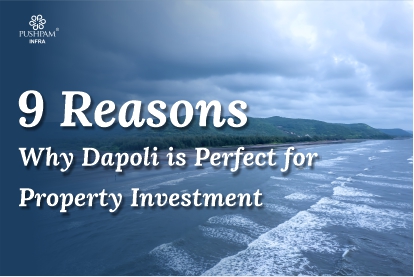Best Real Estate Investment
Vacation Home or City Apartment

Real estate investment has always been a popular choice in India, with the growing affluence of urban residents driving the trend of purchasing Vacation homes. Traditionally, these Vacation homes have served as a passive income source. However, the cost of owning a city apartment has become exorbitant, and many buyers face various challenges associated with such investments. As a result, urban investors are now increasingly looking towards resort home investment as an attractive alternative.
These resort-style properties, situated close to Tier-1 cities like Mumbai and Pune, are gaining popularity due to their affordability, potential for higher returns, and lifestyle benefits. This shift is redefining the landscape of real estate investment.
Which Real Estate Investment Option is Better?
Choosing between a city apartment and a vacation home can be challenging. To make this decision easier, let’s compare the benefits of these two real estate investment options.
• Value on Investment
Owning an apartment in a Tier-1 city like Mumbai or Pune can be financially draining. The high purchase price often requires buyers to use a significant portion of their savings. Unfortunately, these apartments often do not generate substantial rental income and can take several years to break even, let alone see a profit. This makes traditional real estate investment in city apartments less lucrative in the short term.
In contrast, real estate investments near Mumbai or Pune, such as Alibaug or Karjat, offer a more financially viable option. The initial investment is considerably lower than that of a city apartment, and the rental income, generated through room tariffs, helps investors recover their costs and start making a profit much faster. Vacation rental homes thus provide high ROI real estate investment returns with relatively lower risk.
• Maintenance Costs
City apartments, even those with the most basic amenities, come with significant maintenance costs. Typically, owners must pay a minimum maintenance fee of Rs. 8-10 per square foot. This is in addition to internal maintenance expenses, such as repairing faulty pipes or repainting walls.
On the other hand, vacation homes are often managed by hospitality groups that handle all maintenance tasks, ensuring that the villa or room is always in excellent condition. Unlike residential homes, where owners must bear the cost of maintenance, vacation homes usually operate under a zero-maintenance charge policy. This makes investment in real estate vacation properties a hassle-free choice for those who want passive income without recurring expenses.
• Tenant Management:
Finding tenants for a city apartment can be a daunting task, often involving countless conversations with brokers, property listing sites, and other potential renters. In addition to the time and effort required, owners usually have to pay brokerage fees or subscription fees to listing websites.
In contrast, owning a vacation home in a reputable resort eliminates this hassle entirely. The responsibility of finding guests typically falls on the resort's management, who handle all bookings. Guests either book directly or the resort facilitates the process, generating income for the owner without the need for brokerage or subscription fees. This streamlined approach makes real estate investment in vacation homes much more convenient.
• Leisure and Lifestyle:
City apartments, especially those used as Vacation homes, rarely offer the opportunity to relax whenever you desire, as they are often rented out. However, vacation homes located in scenic holiday destinations offer owners a chance to unwind during weekends with family and friends, enjoying the beautiful views, top-notch amenities, and all the leisure activities that come with it. This makes vacation homes an attractive real estate investment for those seeking a blend of financial returns and lifestyle benefits.
• Family function:
When it comes to hosting special events, residential societies will not permit the use of common spaces, such as clubhouses, for events if you do not live there full-time. Vacation homes, on the other hand, offer a distinct advantage. Owners can book the entire resort for their events, ensuring access to all the necessary amenities, making the occasion memorable and stress-free.
Some vacation home properties even offer a unique, once-in-a-lifetime opportunity to book the entire resort for big family functions, like weddings or large celebrations, at no additional cost. These real estate investment benefits allow you to enjoy a grand event with all the luxury and comfort the property has to offer, without the usual financial stress. Such perks add to the growing appeal of vacation homes.
• Property Tax:
Another financial consideration is property tax. Owning a second home in the form of a city apartment usually comes with a hefty property tax bill. In contrast, vacation homes, often located in suburban areas, are subject to much lower property taxes, making them a more economical choice in the long run. This tax advantage makes real estate investment in vacation properties more cost-effective than traditional city apartments.
Given these factors, vacation homes clearly outperform city apartments in terms of investment potential, cost-effectiveness, and lifestyle benefits. For investors looking for an optimal real estate investment that offers both financial and personal value, vacation homes are undoubtedly the smarter choice.








